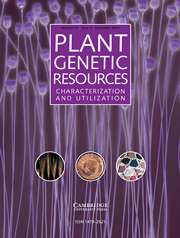No CrossRef data available.
Article contents
Proteomic identification of a fucosyltransferase from petals of milk thistle, Silybum marianum
Published online by Cambridge University Press: 16 July 2014
Abstract
Fucosyltransferases are a group of enzymes that catalyse the transfer of l-fucose from a donor substrate to an acceptor molecule. Silybum marianum is also called ‘milk thistle’ due to its characteristic flower shape. It produces two major flavonoids: silymarin and silybin. The plant and its major secondary metabolites are used for treatment/recovery after chronic liver disease, liver rehabilitation after hepatitis and treatment of gallbladder disease. These compounds also act as antioxidants for scavenging free radicals and inhibiting lipid peroxidation. We identified two peptide motifs (YYEAYLSHADEK and TTPDPSCGR designated as motif 1 and motif 2, respectively) of a fucosyltransferase derived from S. marianum that are highly conserved in its counterparts across the plant species and sources. The nature and properties of the motifs are discussed in terms of their putative participation in catalysis and enzyme/active site conformation.
- Type
- Research Article
- Information
- Plant Genetic Resources , Volume 12 , Issue S1: Special issue on the 3rd International Symposium on “Genomics of Plant Genetic Resources” , July 2014 , pp. S95 - S98
- Copyright
- Copyright © NIAB 2014


